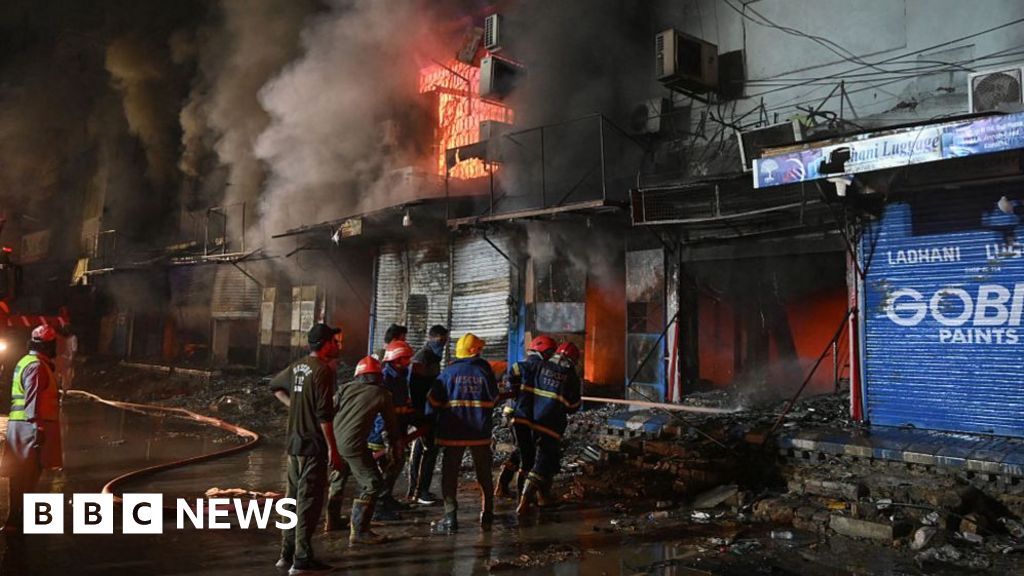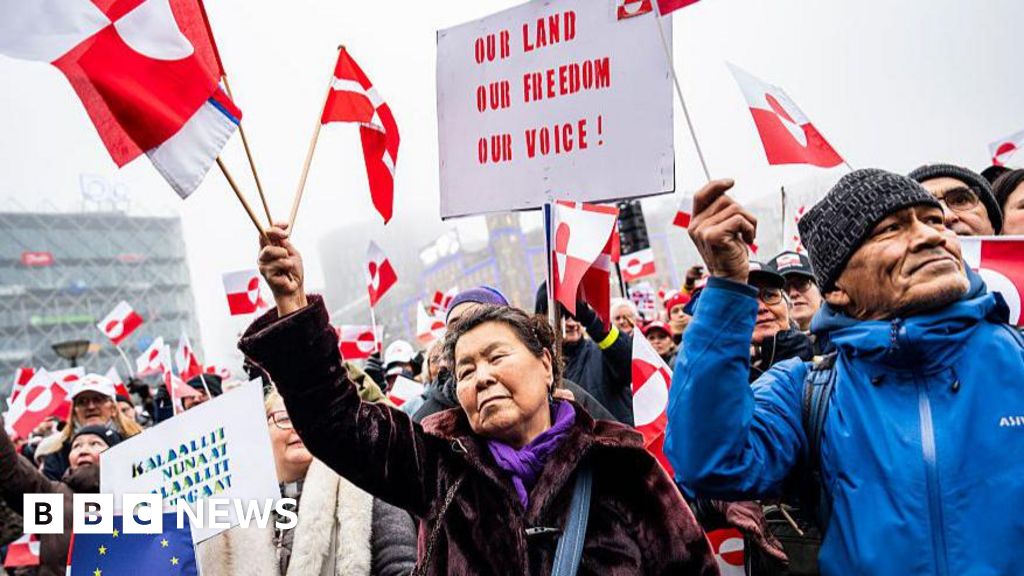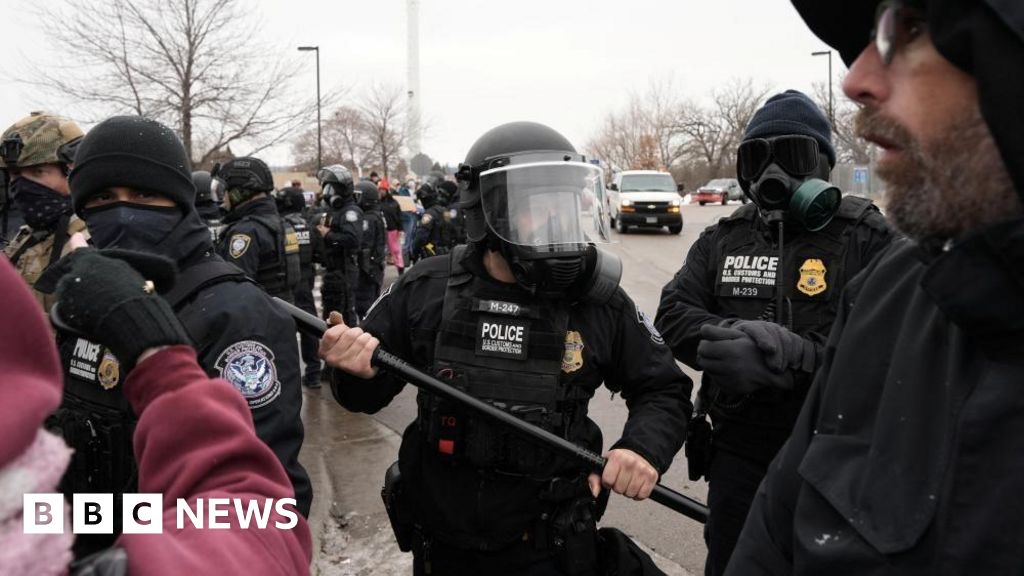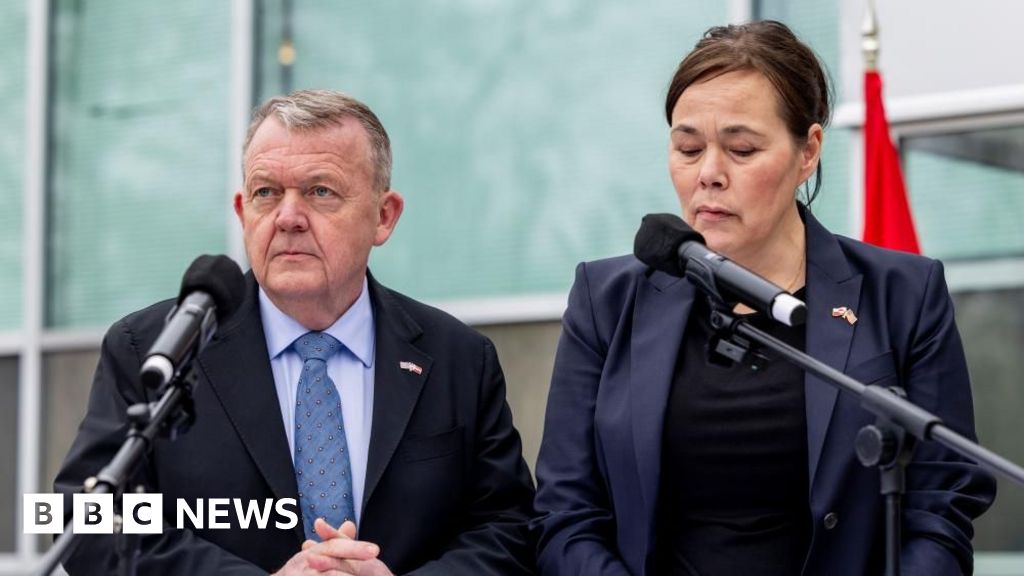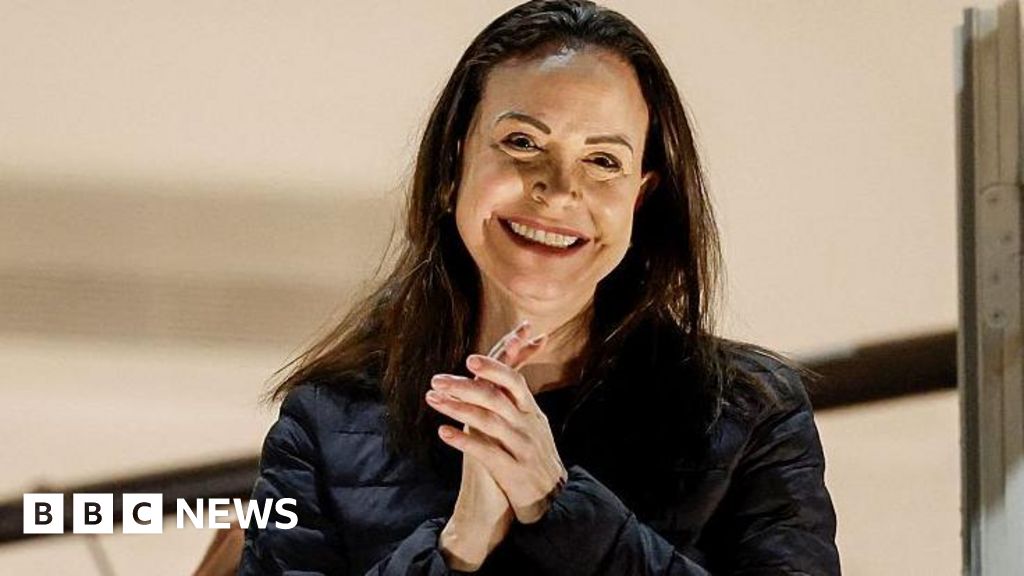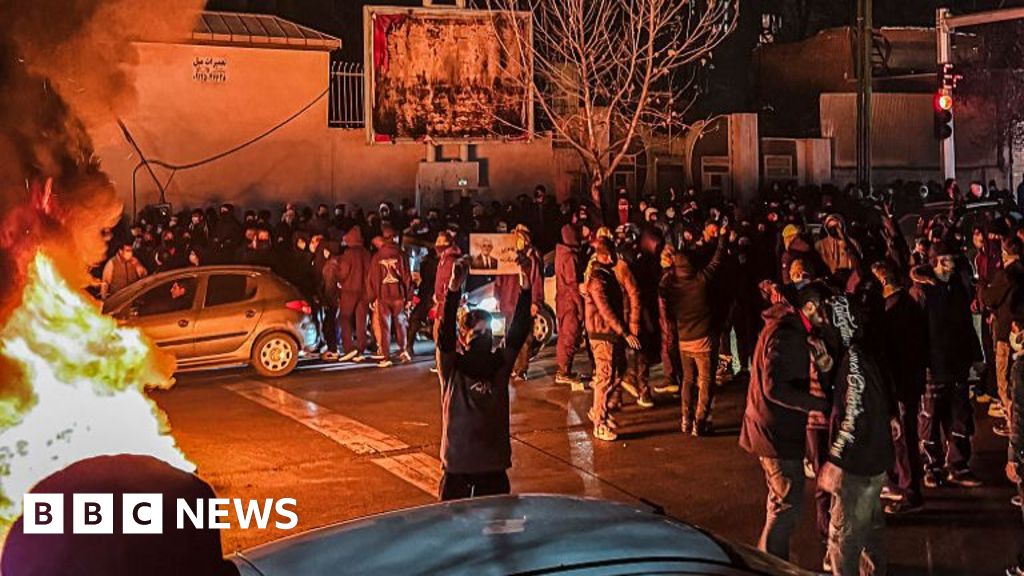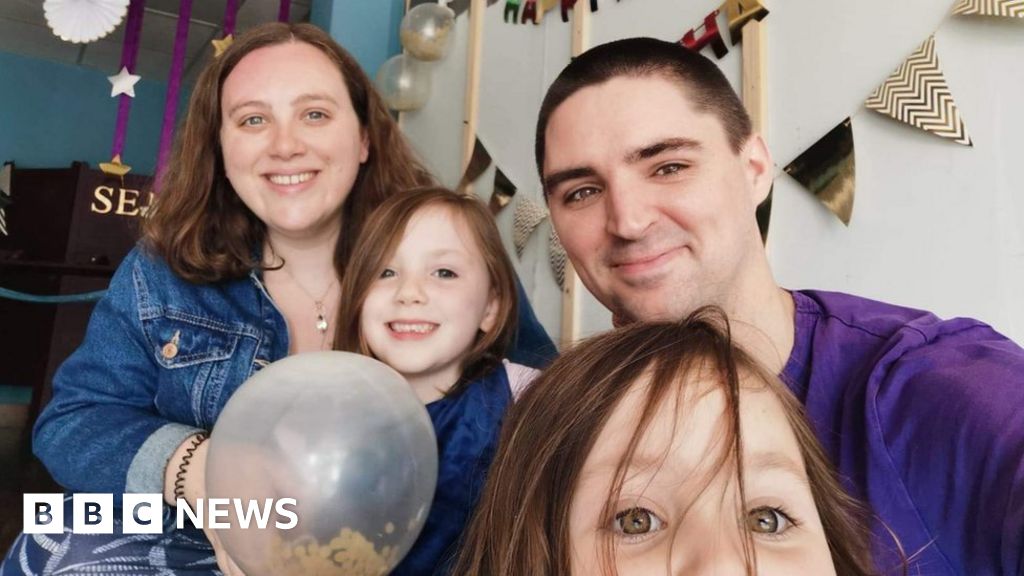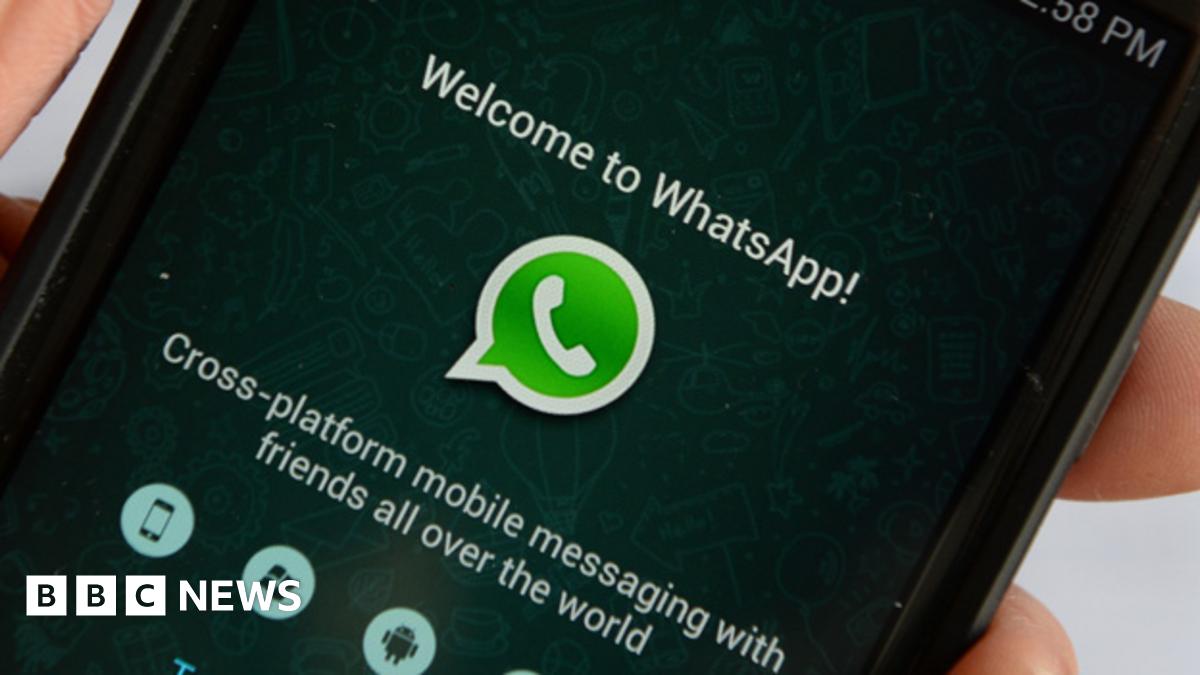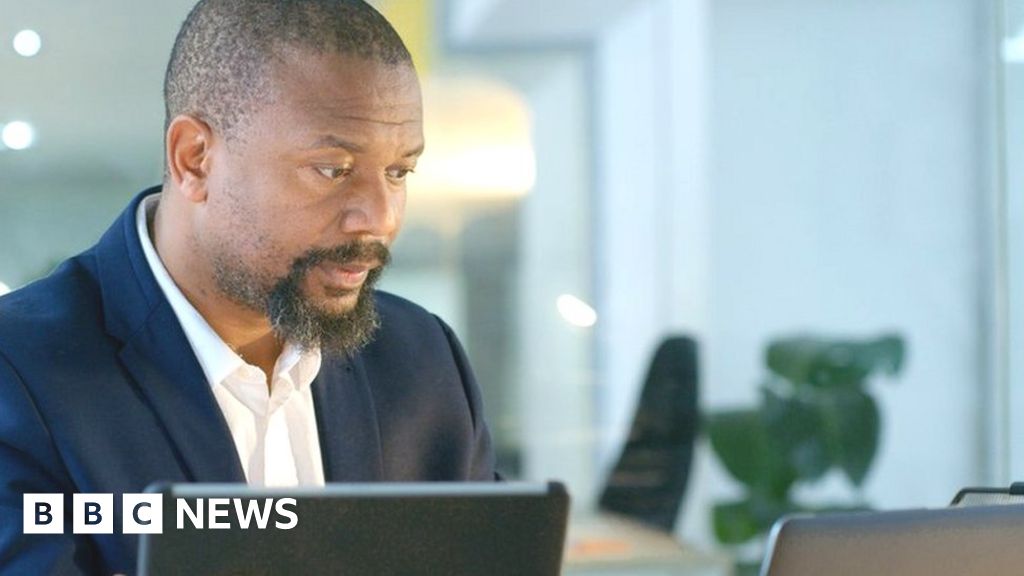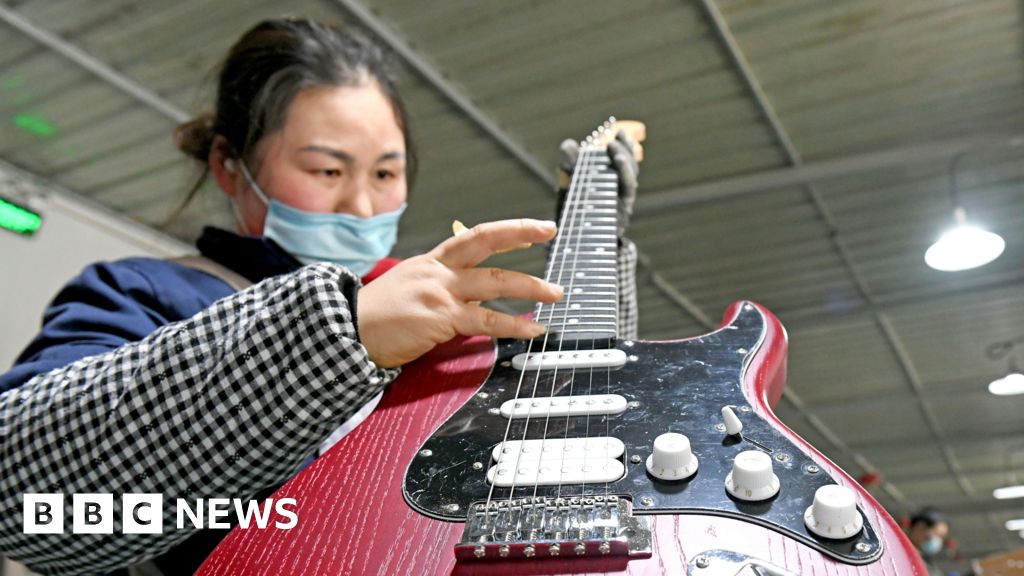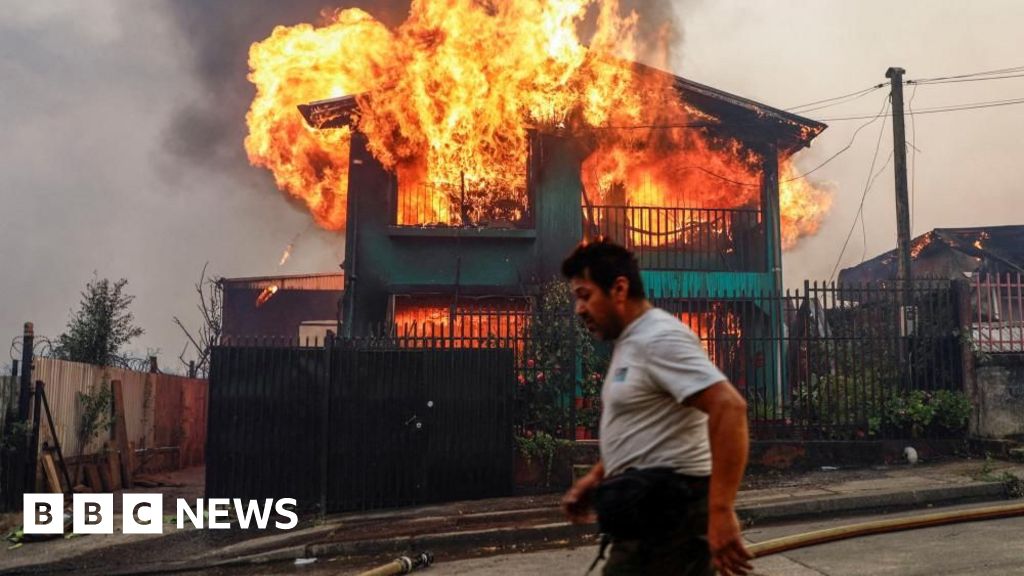Image copyright
Burns family
Richard Burns decided to move out of his family home at the start of school term
A father with an immunodeficiency disease has decided to stop all physical contact with his family due to his children returning to school.
Richard Burns, from Bangor, County Down, is in the “extremely vulnerable category” due to his medical condition.
He said he made the decision “for his own safety” and so that his daughters could continue their education.
Richard has been told by his immunologist if he were to contract Covid-19 it could be fatal.
His body is incapable of producing B cells, which are responsible for generating antibodies to help fight off infections.
The condition, which he has had since birth, means he is required to infuse blood plasma to “top up” his immune system every three weeks.
He said: “For me, it’s really serious. I developed bronchitis when I was younger and because of that I’ve developed serious lung problems.”
Image copyright
Burns family
Richard now keeps in contact with his pregnant wife, Patricia, and two children, Eleanor and Rosa, virtually
The Department of Education (DoE) advises that pupils with vulnerable family members can have an individual risk-assessment conducted “in conjunction with parents, health professionals and school leaders”.
They said these should be “developed and implemented on a setting-by-setting basis”.
- More than 300,000 children returned to the classroom in September
- Back to school, but not back to normal
A risk assessment can provide a graded number-based system on the “likelihood”, “severity” and “risk” that someone is likely to be exposed to coronavirus with certain safety measures in place.
However, Richard said the risk assessment that was carried out at his daughter’s school “did not reassure him for his own safety” and described it as “just a lot of numbers on a page”.
“This is my life we are talking about, I need to take every precaution possible,” Richard said.
Image copyright
Burns family
Richard said it was “heart-breaking” not being there for his four-year-old daughter Rosa’s very first day of primary school
For many parents, seeing their children return to school brought back some semblance of normality. However, for Richard it was quite the opposite.
Despite shielding officially ending on 1 August, Richard took the decision to continue shielding with his family.
But at the start of school term he decided to move out of his family home and into his mother’s house in Millisle, County Down.
He now lives in a closed-off area in the house, he has limited contact with his mother and they maintain a constant social-distance.
Virtual family time
Richard now keeps in contact with his pregnant wife, Patricia, and two children, Eleanor and Rosa, entirely virtually with extended family helping out during his physical absence.
“We don’t want the girls to be disadvantaged,” said Richard. “They’ve already lost so much schooling already, but the only option we felt as a family was for me to move out.
“It’s impossible to completely eliminate the risk, but it is so important that everything is done to at least minimise it.
“I just don’t understand how that could be the case when schools have reopened with full classes of pupils and with them being in there full-time.
“I wouldn’t have moved out if there was a mixture of online learning from home and reduced class sizes which had initially been suggested – I could’ve accepted that.”
The Department of Education (DoE) has said pupils or children of parents in the vulnerable category “can attend their education setting”.
Image copyright
Pacemaker
North Down MP Stephen Farry has said “parents are bouncing back between schools and GPs to get situations addressed”
MP for North Down Stephen Farry has called on the executive to give more clarity to parents and schools.
“It is very concerning the lengths that my constituent feels compelled to go to protect his family,” Mr Farry told BBC News NI.
“Education guidance exists in a vacuum, and parents are bouncing back between schools and GPs to get situations addressed.”
The DoE told BBC News NI the Department of Health had issued guidance for people deemed most vulnerable.
According to latest public health advice, those considered vulnerable are encouraged to “stay at home as much as possible”.
When going outside and socialising, they are advised to be “particularly careful to adhere to social distancing guidelines and other guidance”.
The DoE also said that officials were currently “working to prepare new guidance, which will include updated advice on risk-assessments.”
